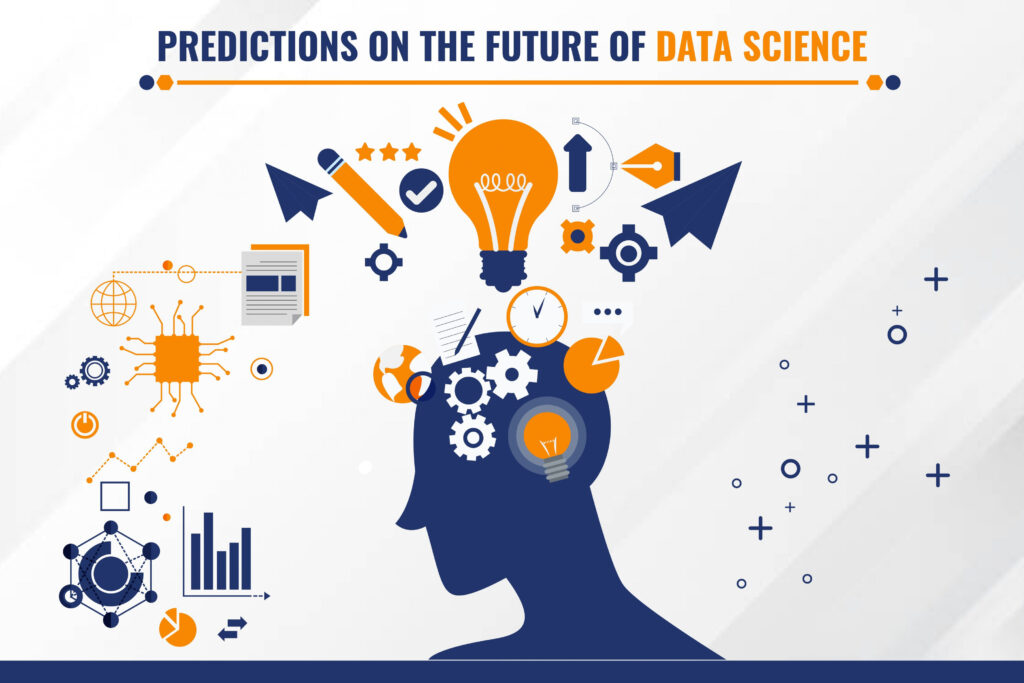
Data Science Course
Data Science Course Duration: 12 Months Diploma Program Training Mode: Online Batch Size: 1 to 25 Regular Batch: Monday to Friday (01 Hour per day) Weekend Batch: Sat + Sun (02 Hours Per Day)
ACLM’s Data science course is now a been top of the mind course for learning and development. It’s known as the most demand course of the era. This emerging field has become a necessity for all businesses and evolving data driven outcomes globally.
ACLM’s team helping companies to select the best candidate from ACLM’s data pool for their organization.
Data Science in various sector

60+ Case Studies
Work on 60+ Case studies and Assignments with 24/7 Assignment support.

25+ Live Projects
Get Industrial experience by working on our Industry Relevant Live Projects with real time implementation to learn.

Our TieUps
ACLM has Tied up with 150+ Companies to Provide Jobs to Many Students
🧠 Module 1: Foundation of Data Science
What is Data Science?
Data Science vs. Data Analytics vs. Machine Learning vs. AI
Real-world applications and career paths
CRISP-DM or lifecycle of a data science project
📊 Module 2: Data Handling & Preprocessing
Data types and structures (Structured vs. Unstructured)
Data Cleaning (missing values, outliers)
Feature Engineering
Data Transformation (scaling, encoding)
Introduction to ETL processes
Tools: Pandas, NumPy, OpenRefine
🗃️ Module 3: Data Management & SQL
Introduction to Databases
SQL for Data Science
Joins, Subqueries, Aggregations
NoSQL (basic intro to MongoDB or Firebase)
Big Data fundamentals (Hadoop, Spark basics)
📈 Module 4: Data Visualization
Importance of storytelling with data
Charts and plots (bar, line, scatter, heatmaps, etc.)
Dashboarding
Tools: Matplotlib, Seaborn, Plotly, Power BI / Tableau (basic)
🧮 Module 5: Statistics & Probability for Data Science
Descriptive statistics
Probability distributions
Hypothesis testing
Confidence intervals
Central Limit Theorem
Correlation vs. Causation
🤖 Module 6: Machine Learning
Supervised Learning: Linear Regression, Logistic Regression, Decision Trees, SVM
Unsupervised Learning: Clustering (K-Means, DBSCAN), PCA
Model evaluation: Accuracy, Precision, Recall, F1-score, AUC
Model tuning: Cross-validation, GridSearchCV
Tools: scikit-learn, XGBoost
🧠 Module 7: Deep Learning & Neural Networks
Introduction to Neural Networks
CNNs (image data)
RNNs / LSTM (sequence data)
Transfer Learning (using pre-trained models)
Tools: TensorFlow, Keras, PyTorch
📦 Module 8: Natural Language Processing (NLP)
Text cleaning and preprocessing (tokenization, stemming, etc.)
Sentiment analysis
Text classification
Transformers & LLMs (like BERT, ChatGPT)
Tools: NLTK, spaCy, Hugging Face Transformers
🔒 Module 9: Data Ethics, Privacy, and Responsible AI
Bias and fairness in AI
Data anonymization and privacy laws (GDPR, etc.)
Explainable AI (XAI)
Model interpretability: SHAP, LIME
🌐 Module 10: Real-World Projects + MLOps
Version control (Git, GitHub)
Cloud deployment (basic: Streamlit, Flask + Heroku/AWS)
Model monitoring and updates
CI/CD for ML
Tools: Docker, MLflow, FastAPI (optional)
📁 Bonus: Capstone Project
Choose real-world datasets (Kaggle, UCI, etc.)
End-to-end project (EDA → Modeling → Deployment)
Present with dashboards or apps
🌟 Trending Topics (Optional Add-ons)
Generative AI (ChatGPT, DALL·E, etc.)
AutoML
TinyML (ML for IoT devices)
Time Series Forecasting (Prophet, ARIMA)
Recommender Systems
Prompt Engineering
Cybersecurity & Cyber Crime
Cybersecurity professionals use data-driven approaches to identify and respond to security incidents, leveraging data analytics to detect anomalies and patterns that might indicate cyber threats

Financial, Business Analytics
Financial and business analytics are essential disciplines in modern organizations, focusing on using data and quantitative methods to gain insights, make informed decisions, and drive performance improvements.

Data, Media and Society
The relationship between data, media, and society is complex and multifaceted. It involves issues of media literacy, data ethics, and the regulation of data-driven technologies. for information dissemination and its societal impact.
Trending Topics in Data science

Projects you’ll do under ACLM’s Data Science Course
Through rigorous exercises, hands-on projects, assessments, hackathon and a personalized Capstone project, this program will prepare you to start your career in Data Analytics and Machine Learning/Data Science at A-list firms and startups.
Certifications related to Data Science Course:
Upon successfully completing this program, you’ll earn a Diploma Program in Data Analytics and Machine Learning Certificate. This Program in Data Analytics and Machine Learning Course will add considerable value to your professional credentials.
Participants who successfully complete all evaluation components with minimum pass marks and meet the requisite 75% minimum attendance criteria will be awarded a Certificate of Completion from ACLM. Participants who are unable to clear the evaluation criteria but have the requisite attendance will be awarded a Participation Certificate.


